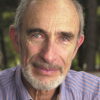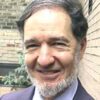In pushing other species to extinction, humanity is busy sawing off the limb on which it perches.
Paul Ehrlich (b. 1932) American conservation biologist and ecologist
(Attributed)
All citations for this I found are from a reference in Elizabeth Kolbert, The Sixth Extinction: An Unnatural History, ch. 13 (2014), to a sign in the American Museum of Natural History's Hall of Biodiversity which "offers a quote from the Stanford ecologist Paul Ehrlich," giving the above text.
I was unable to find the phrase in Ehrlich's written work, though it could be from a speech, media comment, etc.
In Ehrlich's One with Ninevah: Politics, Consumption, and the Human Future (2005), the epigraph for chapter 2 is a quotation from William R. Catton, Jr., Overshoot: The Ecological Basis of Revolutionary Change, ch. 2 (1980), regarding Earth's finite non-renewable resources:
This fact puts mankind out on a limb which the activities of modern life are busily sawing off.
This might be the source of a misattribution to Ehrlich, though the context is not quite the same, and the metaphor of sawing off the branch one is sitting on is not unique to Ehrlich or Cotton. More research is needed.
Quotations about:
ecology
Note not all quotations have been tagged, so Search may find additional quotes on this topic.
Though it might be nice to imagine there once was a time when man lived in harmony with nature, it’s not clear that he ever really did.
Elizabeth Kolbert (b. 1961) American journalist and author
The Sixth Extinction: An Unnatural History, ch. 11 (2014)
(Source)
The parallels between Easter Island and the whole modern world are chillingly obvious. Thanks to globalization, international trade, jet planes, and the Internet, all countries on Earth today share resources and affect each other, just as did Easter’s dozen clans. Polynesian Easter Island was as isolated in the Pacific Ocean as Earth is today in space. When the Easter Islanders got into difficulties, there was nowhere to which they could flee, nor to which they could turn for help, nor shall we modern Earthlings have recourse elsewhere if our troubles increase. Those are the reasons why people see the collapse of Easter Island society as a metaphor, a worst-case scenario, for what may lie ahead of us in our own future.
Jared Diamond (b. 1937) American geographer, historian, ornithologist, author
Collapse: How Societies Choose to Fail or Succeed, Part 2, ch. 2 (2005)
(Source)
This is the actual full text from Diamond's book. It is almost universally paraphrased (including the bracketed inclusion) as:
The metaphor is so obvious. Easter Island isolated in the Pacific Ocean -- once the island got into trouble, there was no way they could get free. There was no other people from whom they could get help. In the same way that we on Planet Earth, if we ruin our own [world], we won't be able to get help.
I speculate that this pared-down phrasing was used by Diamond during a speech or seminar about the subject, or an interview about the book, and was then mistakenly identified (and copied) as a quote from the book. For example, at the ASA, CSSA, and SSSA Annual Meetings, Long Beach, California (2010), for example, Diamond is quoted with this near match:
The metaphor is so obvious. Easter Island is isolated in the Pacific Ocean; once the Easter Islanders got into trouble, there was nowhere that they could flee. Just as if, today, we on planet Earth mess up our island planet, there is no other galaxy that we’re going to be able to float off to.
We are all boarders on one table — White man, black man, ox and eagle, bee, & worm.
Birds should be saved because of utilitarian reasons; and, moreover, they should be saved because of reasons unconnected with any return in dollars and cents. A grove of giant redwoods or sequoias should be kept just as we keep a great and beautiful cathedral. The extermination of the passenger pigeon meant that mankind was just so much poorer; exactly as in the case of the destruction of the cathedral at Rheims.
Never give children a chance of imagining that anything exists in isolation. Make it plain from the very beginning that all living is relationship. Show them relationships in the woods, in the fields, in the ponds and streams, in the village and in the country around it. Rub it in.







